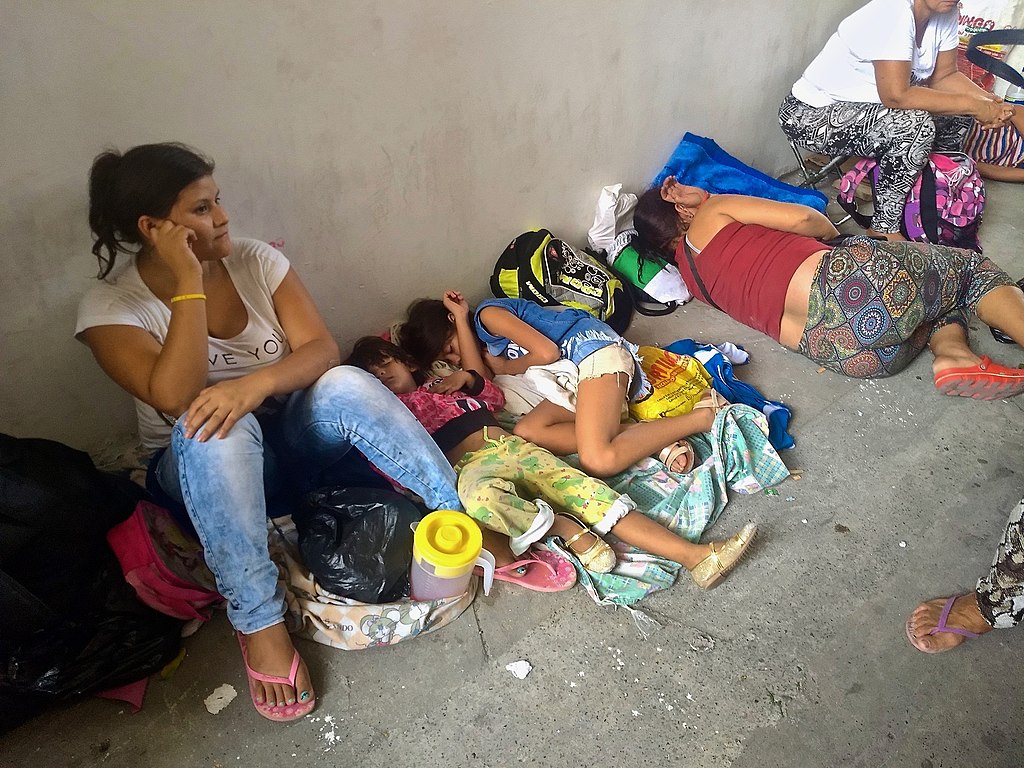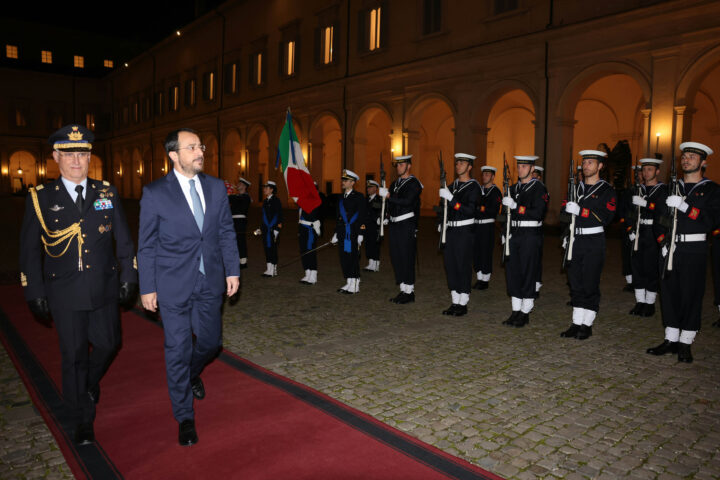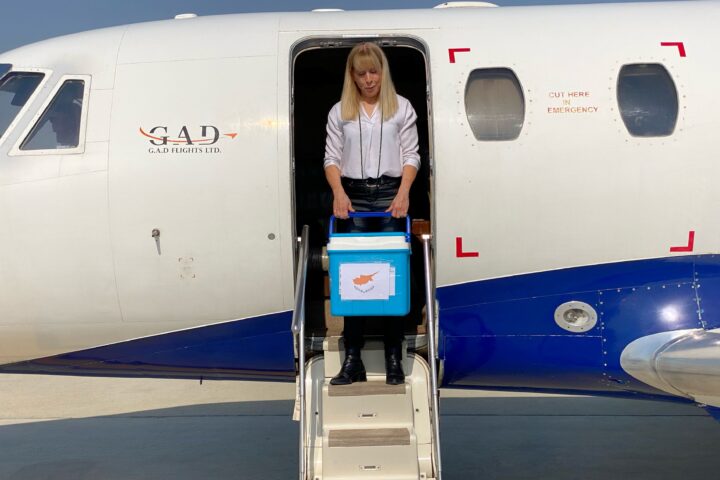By Ravi Bangar
As the world is focused on the fast unfolding devastating coronavirus crisis, the US on 25 March announced rewards leading to the arrest or conviction of various Venezuelan leaders, including President Nicolas Maduro – a bounty of $15 mln on him and lesser amounts on others on charges of narco-terrorism.
The sole aim of this announcement was to push him out of power from the oil-rich but crisis-ridden South American country.
Its close alliance with China, Russia, Iran, Cuba and Turkey has long been frowned upon by the US.
Venezuela has been a thorn in the US side for nearly two decades since the leftists under Chavez came to power in 1999.
The coup attempt which briefly removed Chavez in April 2002, was the first shot across the bow.
The coup which was in the making for over a year and all it achieved was to install the president of FedeCamaras (Venezuelan Federation of Chambers of Commerce) as the nation’s president for less than 48 hours.
Carmona soon after fled to Colombia and was granted political asylum as were many of Chavez’s political opponents.
This development set the US and Venezuela on a collision course which has yet to run its full course.
The US-imposed sanctions, recognition of Juan Guaido, self-proclaimed interim president by over 60 countries, have not succeeded in dislodging the Chavistas from power.
Maduro continues to retain the support of the army.
Colombia – the close political, military, strategic ally of the US and South America’s only Global Partner of NATO – and historic rival of Venezuela has led the charge against the Bolivarian Republic unilaterally and regionally.
The Lima Group’s demand, since its establishment in 2017 to fast-track Maduro’s removal, to hold elections have failed.
The group has been a mere talk shop.
So have been the US theatrics to politicise the Venezuelan refugee crisis by intervening in the country on the pretext of providing humanitarian assistance.
The last attempt to push assistance through the Colombian border in February 2019 was spectacularly dashed and led to chaos and bloodshed on the Colombian-Venezuelan border.
Venezuela requested a $5 bln emergency loan from the IMF to fight the coronavirus.
This was in sharp contrast to its earlier ticking-off of the Fund. It was promptly rejected.
An IMF spokesperson was reported to have said the request can’t be considered because there was no clarity among its member states on who it recognises as Venezuela’s rightful leader: Nicolás Maduro or Juan Guaidó.
Venezuela was the first country to approach the $50 bln fund helping developing countries to deal with the virus.
Such is the behaviour of the international organisations, even in times of a global pandemic!
The US State Department announcement came close to the IMF declaring the global economy had slipped into recession due to a slump in demand on account of the coronavirus impact.
The global demand for oil is unlikely to see upward escalation.
The ongoing oil production war between OPEC and OPEC+ does not show any signs of abating.
This will push high-cost, debt-laden US shale energy industry into bankruptcy in the medium term. Thus, the US reward on Maduro could also be an attempt to stir the pot afresh and squeeze its declining oil production further down.
Even prior to the COVID-19 pandemic, Venezuela’s oil industry was in deep crisis.
Severe sanctions applied last year by the Trump administration nearly halved oil production.
The economy continues to be in the doldrums and there is hardly any sign of it doing better in the short to medium term.
The mismanagement by Chavistas, rampant corruption, unbridled hyperinflation, shortages of medicines and food has brought the once role model for oil-rich developing countries to this ruin.
This has worsened a humanitarian crisis that has pushed nearly 5 million people to flee the country since 2015.
Regional landscape
On the regional landscape, while earlier Bolivarian integration projects (UNASUR, ALBA, CELAC) have been disbanded or enfeebled, their replacements (PROSUR, Pacific Alliance) have at best made very modest progress.
The Lima Group has failed in finding a peaceful exit from the Venezuelan crisis.
The Organisation of American States (OAS) has hardly played a constructive role in the various efforts at dialogue between the Venezuelan government and its opposition over recent years.
It finds itself highly polarised thanks to it pushing the US agenda in the continent’s affairs.
The re-election of Luis Almagro, Secretary-General of the OAS earlier this month is not expected to make any change with regard to Venezuela.
He has aligned the Organisation closely with the US interest and thus severely dented its legitimacy.
He no doubt will continue to push for change in Venezuela. In these circumstances, any regional efforts at finding resolution of the Venezuela crisis are unlikely to succeed.
The US expectations of forcing a change in Venezuela following the election of rightist and right-of-centre regimes (Brazil, Chile, Peru, Ecuador) also came to nought.
This is because the main actors of the Latin American right have not promoted any alternative strategy in regional relations that do not involve the US.
Further, the largely commodity-dependent region is staring at a deeper and longer recession than the emerging economies elsewhere.
In these circumstances, any regional efforts are unlikely to succeed to bring about change in Venezuela.
President Trump first announced that there might be a “military option” for Venezuela, then imposing crippling financial sanctions in August of 2017.
He has shown limited interest in nurturing relations with his many avid allies in Latin America.
He has cancelled several trips to the region, including two to Colombia.
These visits would have, inter alia, undoubtedly focused on countering Venezuela’s left-wing government.
As of now, his only presidential trip south of the border has been to Buenos Aires, for the December 2018 G20 summit.
Now battling coronavirus and the Republican and presidential election campaigns, he is highly unlikely to visit the region.
The days of US military interventions in the region a la Panama to get Noriega are over.
Hence, the present US announcement perhaps is in the hope that with inducement the elements within or outside the regime could bring about the fall of Maduro.
As they say in Spanish, Vamos a ver – We’ll see.
The author is a retired diplomat and former High Commissioner to Cyprus and Ambassador to Colombia and Ecuador










